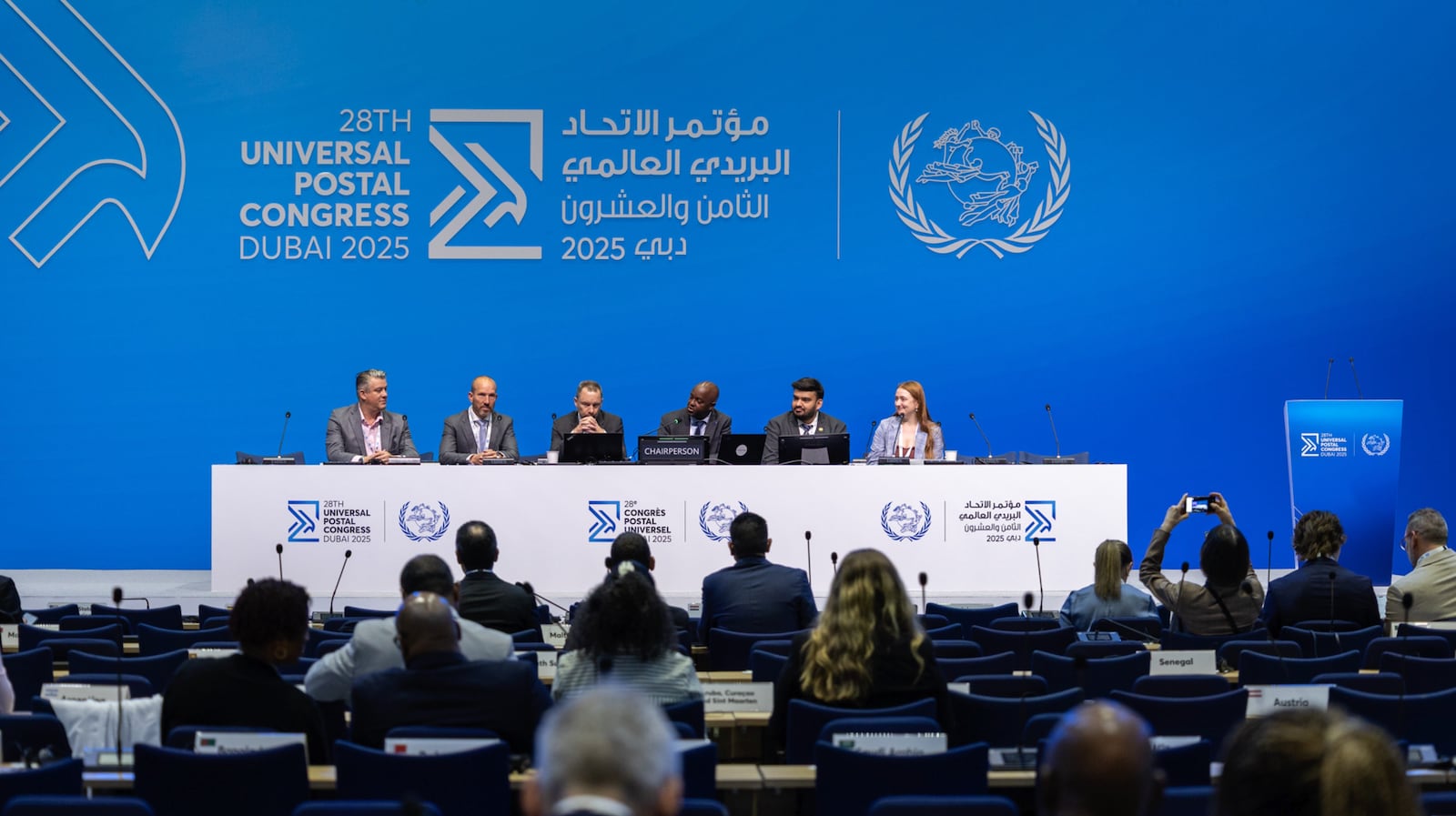In late July, an executive order from President Donald Trump sent the global postal world scrambling when he scrapped a 1938 law that allowed customers to skip paying import fees on packages valued under $800.
With about a month’s warning, dozens of countries suspended shipping to the United States, as they had no infrastructure to process the import fees for that amount. While the shift applied to international postal services instead of private carriers like DHL and FedEx, this meant hundreds of mail handling agencies worldwide would have to figure out how to ensure tariffs that were never processed before could be paid.
Enter two Utah companies, including St. George-based Zonos, which has been focusing on international fees and tariffs for 16 years.
On August 21, eight days before the exception was set to end, Zonos founder and CEO Clint Reid posted on LinkedIn that his company was in the midst of “very exciting news” related to these international shipments. U.S. Customs and Border Protection (CBP) had listed Zonos and Utah’s SafePackage as qualified parties to collect duties on these smaller packages, send those duties to CBP directly and mark those duties as paid on behalf of the government.
SafePackage, for its part, issued a press release the next day calling the development a “significant regulatory milestone.”
Within a few days, many more companies announced that they would also process payments ahead of and after the Aug. 29 change. But for Joshua Aikens, Zonos’ senior customer service manager for community affairs, the change led to a “land grab” in which private companies in the space could get relationships with international postal services first.
“For a small company like ours, it’s a big deal,” Aikens says of Zonos’ ability to process the payments for CBP.
Aikens says they began talking with postal services internationally, starting with “the biggest ones first, then everybody else we just put into the queue.” In the final weeks of August and the beginning of September, Zonos has publicly confirmed that they are processing payments for Israel, Vanuatu, Canada, New Zealand, Ukraine, the United Kingdom, Australia, and more. The contracts are generally exclusive, meaning Zonos is the only company partnering with these countries’ postal services.
“Before this E.O. dropped, we were already discussing with CBP and the [United States] Postal Service (USPS),” he says.
Aaron Bezzant, Zonos’ head of supply chain, says the company noticed an opportunity when the Trump administration’s first attempt at ending the de minimis exception failed in February of this year. Throughout the spring and summer, Bezzant says Zonos began meeting with contacts in Washington, D.C. and building relationships, helping ensure they could be picked as a qualified party to process payments once the exception was eventually ended.
“We just saw a technology problem,” Bezzant says, clarifying that their team listened to interviews with government officials and realized they were the type of solution that the agencies were looking for. “The whole process has never been transformed because there was never a lot of need for it.”
Part of what made the announcement a natural step for Zonos, Aikens says, is that the company already had a pre-existing contract with USPS to make software.
“We basically were saying the postals [services internationally] need some way to collect that duty and tax, and it could be in advance at the checkout — just like we do for regular merchants — or it could be like an invoice and built after,” Aikens says.

Bezzant clarifies that the company’s core focus is on payments for duties and taxes. But as part of this process, they’ve had to build out some security protocols to work with CBP, opening up additional opportunities for Zonos in the future. He also points out that the information they’ll be collecting on shipments and purchasers goes beyond what the government was able to do previously.
The de minimis exemption has a recent history of controversy in the global trade space that led to Trump’s executive order. In January, the Congressional Research Service published a report arguing that a 2015 change by Congress to raise the exemption from $200 to $800 had established the figure “well in excess of inflation.” It stated that “the number of de minimis entries has increased from 153 million in 2015 to more than 1 billion in 2023.”
E-commerce companies like Shein and Temu, for example, had offered low prices to U.S. customers through the exemption, selling packages under $800 without tariffs and beating prices from U.S. companies that import larger amounts, therefore paying duties before they sell the product. For supporters of the de minimis both within the U.S. and abroad, the argument was that lower prices helped consumers domestically while benefiting foreign companies and global trade.
In April, Trump called the exemption a “scam” and suggested it could be used for illicit packages and drugs, repeating a talking point that’s been growing from groups like CBP and the National Sheriffs’ Association.
Aikens, who was raised in Utah, notes that there’s been a long-term shift toward working within the international market and trying to develop a global position in trade.
“Utah is definitely making some noise on that front, and we’re kind of along for the ride,” he says.

